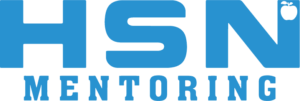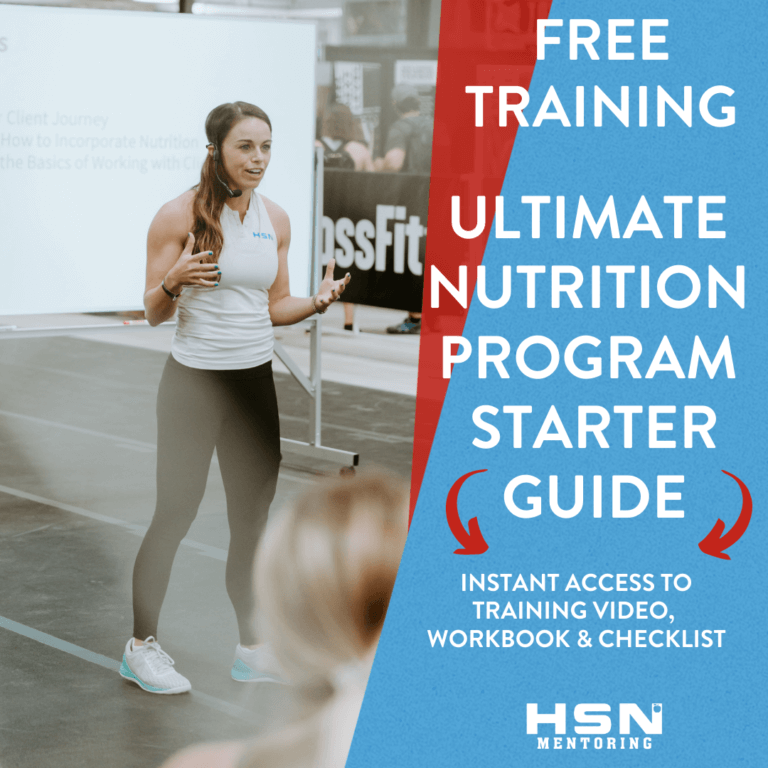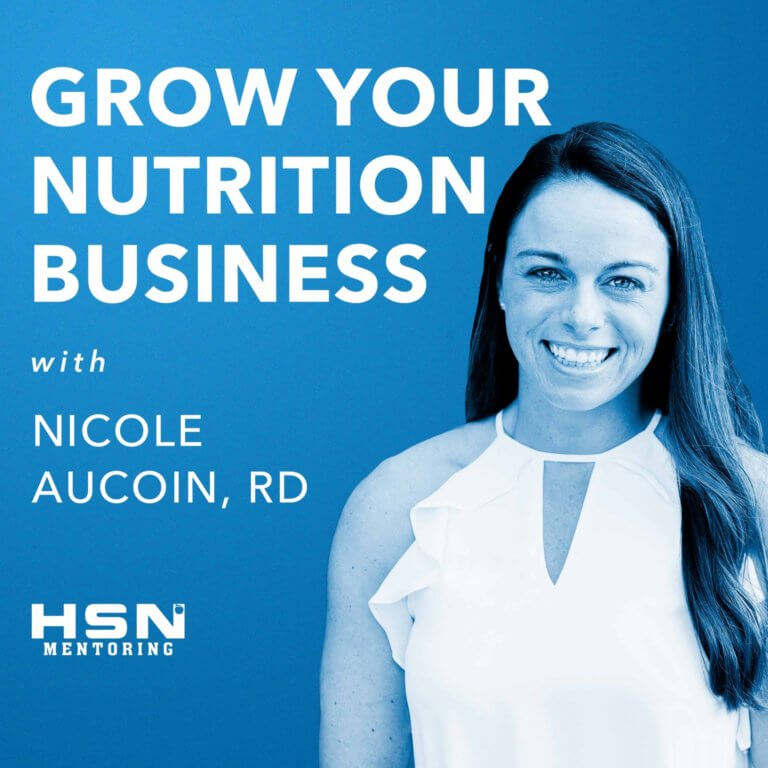As a gym owner and/or nutrition coach, you aren’t going to be in front of every member. Ensuring your staff is on the same page is vital to the success of your program.
Here’s the problem, coaches will not talk about what they don’t feel comfortable with, so it’s your job as a nutrition coach and an owner to train them and ensure they feel comfortable!
But some gyms have exceptional staff buy-in.
What do they do differently?
In this episode, Ashley Osterman and Nicole Aucoin discuss three proven strategies to increase staff buy-in.
When you have increased staff buy-in and a consistent message about where nutrition should be on your client’s priority list, you will have increased success with your nutrition program. If you are a nutrition coach, please send this episode to your gym owner!
3 Proven Strategies To Increase Staff Buy-in
Keep it consistent with staff training
What is the mission statement of your facility?
The first step is to make sure the message is consistent by including it in your staff trainings.
We recommend having it a part of your on-boarding then a part of of ongoing education. Role-playing in staff meetings is another way to ensure there is a consistent message.
If your staff understands why nutrition is a priority, they’re going to be more likely to talk about it with your clients
At HSN HQ, we sit down with all of our CrossFit coaches and go through exactly how we coach nutrition, help them understand why we do what we do and how important it is to helping our clients achieve the results.
Have your staff be your test clients
We recommend having your coaches or the person that’s doing the free intro’s be your test clients. It is so much easier to speak from experience.
Have your coaches be test clients, you can even have them jump in and be a part of a challenge. Get them familiar with the program and so they are able to speak from experience, is such an important way to increase your staff buy-in with your nutrition program.
Build nutrition into the culture
When you build nutrition into your brand and you build it into your culture, the conversations will happen organically.
If you’re not building it into the culture, when someone hits a plateau where they’re not seeing the results that they are looking for, they’re going to think your program doesn’t work and they’ll go somewhere else. But if you have it in the culture, those conversations are happening.
Hype up the members that are doing awesome who you see dialing in their nutrition. Ask members to post recipes, ask them to tag you in the healthy foods that they’re eating and then draw attention to it when you see them in person.
During goal setting sessions, this is a great opportunity to sit down one-on-one with someone and say, “How is it going with your nutrition?”
Doing InBody scans for members is another great way for gym owners to get people back on track with nutrition and guide them to get started with a nutrition coach.
Additional FREE Help Related To
Building A Nutrition Program In A Gym
LISTEN: How To Build A Nutrition Program Into A CrossFit Gym HERE
LISTEN: Inside The Nutrition Program At CrossFit Brighton & How Nutrition Coach, Darcie Helped Brent Lose 100 PoundsHERE
LISTEN: Nutrition Made Simple Podcast – CrossFit, Nutrition & Your Health HERE
HSN Mentoring Client Highlight: Meet Rob & Beth Young, Owners of CrossFit Rockland, How A 11-Year CrossFit Affiliate Changed Their Business Model To Prioritize Nutrition & Health Of Their Clients HERE
Free Course:
Building A Nutrition Program Into A Gym
Earn Three CrossFit CEUs By Taking This Nutrition Course
Did you know that HSN Mentoring has a turn-key solution for gym owners to build a nutrition program in-house?
HSN Mentoring is the largest nutrition mentorship business in the world, helping thousands of gym owners and coaches build successful nutrition programs.
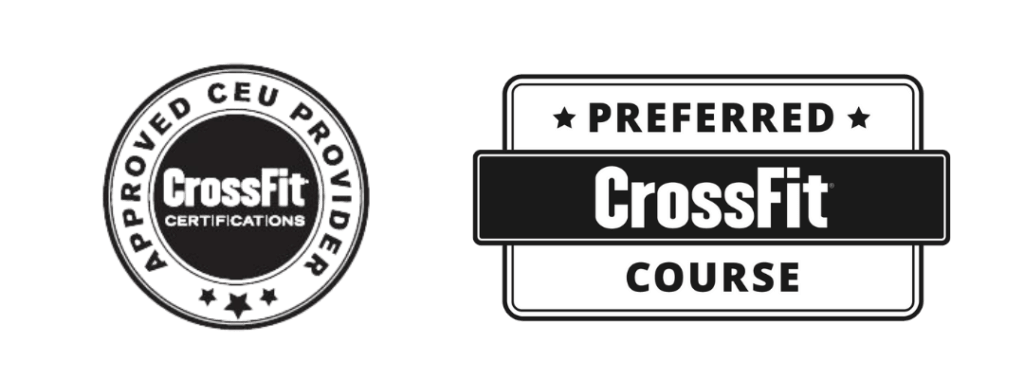
All training and ongoing mentoring is approved for CrossFit CEUs
Join The Facebook Group:
Nutrition Made Simple For Gym Owners
Past Webinar Recordings
Live Q&As
Simple tips to help you build nutrition into your gym
Connect with other gym owners who are looking to build nutrition programs
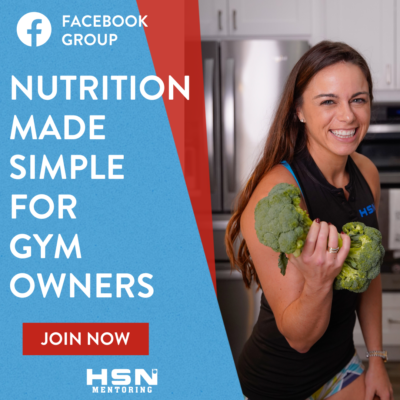
Episode Transcript:
Nicole Aucoin (00:04):
Welcome back to the Grow Your Nutrition Business Podcast. At Healthy Steps Nutrition, we believe something as fundamental as nutrition, shouldn’t be complicated, which is why we focus on a simple habit based approach when working with clients. At HSN Mentoring, we help gym owners and coaches build successful nutrition programs without reinventing the wheel. I’m your host, Nicole Aucoin, registered dietitian and founder of Healthy Steps Nutrition, CrossFit HSN, and HSN Mentoring. I’m also the author of The Basics of Nutrition Coaching: CrossFit Preferred Nutrition Course. I’m going to teach you how to take one step at a time to build a successful nutrition program where you finally feel confident talking about nutrition to your members and to your communities.
Nicole Aucoin (00:52):
Here’s the deal, you can’t be the only one that’s confident. As a gym owner and/or nutrition coach, you are not going to be in front of every member all the time. Ensuring your staff is on the same page is vital to the success of your program. Here’s the problem, coaches will not talk about what they don’t feel comfortable with. So it’s your job as a gym owner or a nutrition coach to ensure they do feel comfortable. If you are an HSN Mentoring client, we take care of this for you with a recorded training that you can show all of your coaches as part of your onboarding process for adding new people to your team and a coach’s development program within the HSN app. So they can see what the app looks like and understand how they can help a client and build that relationship between the nutrition client and the nutrition coach to keep them accountable.
Nicole Aucoin (01:47):
But there are some gyms who have done an exceptional job of getting staff bought into their nutrition program. What are they doing differently? Ashley and I discussed three proven strategies to increase staff buy-in in this podcast episode. When you have increased staff buy-in and a consistent message about nutrition and where it should be on your client’s priority list, you will have increased success with your nutrition program. If you are a nutrition coach, please share this episode with your owner, you have to work together to ensure that consistent message. We will get to this episode right after this message.
Nicole Aucoin (02:31):
Are you loving this podcast and are looking for more support to help you build a wildly successful nutrition program? I have you covered. Do these two things. The first one, subscribe to this podcast so you don’t miss another episode. And number two, make sure that you click the link in the show notes after you listen to each episode. We always link more episodes related to a similar topic and have an overview of notes that we discuss in each podcast so that you don’t miss anything. Lastly, please do me a favor and write us a review, give us five stars on this podcast. We love providing free help, and we would love it even more if it was able to reach more people. Thanks again, and enjoy this podcast on increasing staff buy-in.
Nicole Aucoin (03:18):
Ashley, welcome back to the Grow Your Nutrition Business Podcast.
Ashley Osterman (03:22):
Hi Nicole, thanks for having me.
Nicole Aucoin (03:24):
I’m excited today, we are talking about increasing staff buy-in with your nutrition program in a gym. Why is this so important? Well, there’s a lot of different diets out there. People are so confused because they don’t know what diet is best for them. And if there’s not a consistent message in your business, people will not come to you because they’re not sure if it’s going to work. But if everyone is speaking the same language and everyone is bought into the nutrition program, you’re going to increase buy-in for your members.
Ashley Osterman (04:01):
Yes, and having a clear, consistent message across the board is so important for consistency of customer experience, because we know, especially in a gym setting, people talk to each other. So we want to make sure that everyone is on the same page and speaking the same message, and this really starts with your staff buy-in.
Nicole Aucoin (04:20):
And I would say before the staff, it starts with the owner. A few episodes ago, we had Jay from Strong Body Fitness come on, he’s an owner. He signed up for nutrition coaching with our HQ location, and is so bought into nutrition. Sarah, the owner of Portside Fitness is one of your nutrition clients, and you shared many stories with me about how much more bought in she is now that she’s been a nutrition client, and it’s really trickled down and they’ve added more and more nutrition clients.
Ashley Osterman (04:52):
Yeah, it’s really caused their program to skyrocket because she is invested, she understands and can speak from experience.
Nicole Aucoin (05:01):
At the end of the day, I think John Maxwell said it best, “Everything rises and falls on leadership.” And if you are committed to helping your clients achieve the best results they possibly can, and if they’re looking to lose weight, we know you can’t out exercise a bad diet. Nutrition has to be a part of the solution that you’re providing to your clients. And if you’re just lackadaisical about your nutrition conversation or where nutrition should be on the priority list, your clients are not going to make it a priority. And if they don’t make it a priority, they’re not going to see results. They’re going to think your program doesn’t work for them. And then they’re going to go pay money to someone else to help them with nutrition. Why not offer them the total solution in house?
Nicole Aucoin (05:44):
So we understand that owners have to be bought in, but now let’s talk about staff buy-in. For us at our HQ location, we don’t bring any staff on board that has a very different philosophy in regards to nutrition than what we have. And I think it’s important, or at least they understand why we do what we do and how we help people with nutrition and fitness both. I can give an example of, if you’re a gym owner and you coach CrossFit, and you have a coach that does not do any CrossFit, but they go to Orangetheory every single day, do you not think your members are going to wonder, “What does Orangetheory have that CrossFit doesn’t have?”
Ashley Osterman (06:23):
Right, because they’re going to say, “Why aren’t they practicing what they preach and doing CrossFit and being present in the gym as a CrossFit coach.” It’s going to be very confusing to them and they’re going to wonder what’s going on here.
Nicole Aucoin (06:37):
So you want everyone to be speaking the same language, and I truly believe if you have someone that on your staff, they’re there because they want to help people. And we understand, every coach understands that nutrition has to be a part of the solution, but they don’t feel comfortable talking about it. And I hear this every single day from gym owners, they say, “I know nutrition has to be a part, and I say nutrition is important, but I don’t know how to actually help clients so we skip over that conversation and go right to what I’m comfortable with, fitness.” And it’s the same thing for coaches. So if you will equip them with the tools and knowledge and understand what the frequently asked questions are and how to navigate those, they are going to increase confidence and talk about it more.
Ashley Osterman (07:18):
Yeah, because no one wants to be asked a question they don’t know the answer to and feel confused. They want to be able to support you, but they need the tools to do so. And I think the first step to doing that is making sure the message is consistent by including it in your staff trainings. Train your staff on what you want them to say. And I think to start off with, what is the mission statement of your facility?
Nicole Aucoin (07:42):
Exactly. So you have to have it as part of the onboarding process. I sit down with all of our CrossFit coaches and go through exactly how we coach nutrition, help them understand why we do what we do and how important it is to helping our clients achieve the results. So they need to understand the why, it’s not just to make more money. It’s not that at all. Actually, I would rather someone just do nutrition over nutrition and fitness, or if they were going to pick one, I’d rather them just do nutrition, then fitness, right? I know they’re going to see better results if they do nutrition first than if they just jump into the gym.
Nicole Aucoin (08:14):
So if your staff understands why nutrition is a priority, they’re going to be more likely to talk about it with your clients. So have it as part of the onboarding process, of course, but then also have it as part of the ongoing education that you provide your coaches, right? So we could do role-playing a lot in our staff meetings to ensure there’s a consistent message. There’s clear SOPs, our staff knows exactly what they need to do if someone mentions nutrition. I don’t just want them to say, “Oh yeah, go talk to Ashley. She’s the nutrition coach.” Because that person has a million things on their mind, they’re not going to go talk to Ashley. Ashley needs to know that person is interested nutrition so she can follow up. You have to have the follow-up be reliant on the coaches and staff, not the clients following up with you.
Ashley Osterman (09:03):
Yes, absolutely. And so when we talk about training our staff regarding our nutrition program, we’re not going to train them like they’re a nutrition coach, they don’t need all of that information, all of those tools. What they need is a high level view, the key statements, the key components of your program, how you want them to explain your program and talk about it so they feel comfortable.
Nicole Aucoin (09:27):
Exactly. So what does it look like from a client’s perspective? How will the nutrition coach help the client? And what are those frequently asked questions? Lastly, how does someone get started? What are the next steps? And make it so clear and obvious, write it out, making sure that they can easily reference back what to do and what to say.
Nicole Aucoin (09:47):
One of the things that we recommend doing is gyms that have a foundations program, we have a foundations program in our gym, people do four personal training sessions before jumping into CrossFit classes, we incorporate nutrition into every single one of those sessions. So whether someone is just starting with fitness, which isn’t an option at our gym anymore, but if they were just starting with fitness, they would hear nutrition for the first four days that they’re with us and understand the importance and why we prioritize nutrition so much because it’s going to help them achieve the results that they want to achieve.
Nicole Aucoin (10:20):
So keeping it consistent, laying out exactly what you want them to say, and role-playing that so there’s no miscommunication there. Having staff training is so important and equipping them with the frequently asked questions and the answers to those questions so that they feel more confident. The other thing that we recommend doing, especially if you are a new gym to launching your program, have your coaches be your test clients. Have your person that’s doing free intros be a test client. It is so much easier to speak from experience.
Ashley Osterman (10:57):
And it’s so much easier to be relatable to somebody who’s interested in something. When you can say, “I went through that program. I loved how easy it was. I saw results.” So you have somebody else speaking from experience, and somebody that they know, love and trust, it’s their coach they see all of the time. So having your coaches be test clients, having them jump in and be a part of a challenge, getting them familiar with the program and being able to speak from experience is such an important way to increase your staff buy-in with your nutrition program.
Nicole Aucoin (11:30):
No, it’s funny because if you think of who’s in front of your clients, your potential new nutrition clients-
Ashley Osterman (11:38):
Coaches.
Nicole Aucoin (11:38):
…. coaches.
Ashley Osterman (11:39):
Your coaches.
Nicole Aucoin (11:40):
And if they’re seeing results, if they’re seeing increased gains and increased performance or losing body fat, or just the simplicity of having a plan and having someone to keep them accountable, they’re going to just naturally talk about it because that’s what they’re doing, right? So it’s so much easier to, again, speak from experience, have those test clients for sure.
Ashley Osterman (12:01):
And this also even extends to any of your staff who work at the front desk, who handle social media. Anyone who could potentially be getting asked a question about nutrition and your program, all need to be speaking the same language. So not only your coaches, all of your staff. I know Nicole, when we onboard new staff, even for social media, we have them be test clients, we have them do mock consults. We arm and equip them with those answers for the most frequently asked questions, because someone might reach out to them on social media, someone might email, someone might walk into the front desk and ask your front desk person, “Hey, do you guys do keto meal plans here?” Are they equipped with the answer?
Nicole Aucoin (12:45):
I think it’s an important, well, it’s really important for me that there’s a consistent language about our program and what we offer. I don’t want anyone signing up for our program thinking that it’s something that it’s not right, right?
Ashley Osterman (12:56):
Right.
Nicole Aucoin (12:56):
And if you are just trying to get people to sign up for a program and they’re not equipped with the right answers, you could potentially be setting yourself up for failure or disappointment on either side. So, being able to speak from experience, having that staff training is so important. When coaches, let’s say someone wants to do a nutrition challenge, or we have a coach that wants to do individual nutrition coaching, they just pay what we pay the coach. So at HSN HQ, our standard payment for nutrition coaches is, 44.4% goes to the nutrition coach. So we’ve got some for expenses, and then there’s some that we reinvest into different programs in the gym. But they just pay the cost, so we’re not making any money off of them doing nutrition coaching. They pay the cost of what we pay the nutrition coach, because at the end of the day, we have to value the nutrition coaches time.
Ashley Osterman (13:48):
Absolutely.
Nicole Aucoin (13:49):
So that’s an important thing to think about. Even some of our nutrition coaches work with other nutrition coaches on staff and they are paying the amount that coach gets paid.
Ashley Osterman (14:00):
Yeah. And even if your coaches, your staff aren’t in a position to be able to work individually with a coach, just making sure that you get them that overview of what your program is, that language, those questions. Making sure they are comfortable role playing that scenario. Hey, if I’m a coach and I have a client come up to me and ask, “Where do I get started with nutrition?” What would you say? Or, hey, Jimmy in the class says, “I’m having a rough time right now with staying on track and I’m noticing my workouts are really plummeting.” What would your coach say? Play those scenarios out. The more we talk through and role play, the more comfortable they’re going to be when the situation happens.
Nicole Aucoin (14:45):
I think that’s so important. And something that’s often overlooked with gyms, especially bigger gyms that have people that do the sales process is that person that does the sales process is not comfortable with the nutrition program or doesn’t talk about it, and they skip over the conversation to get someone sold on fitness. And I think that is the number one mistake that you can make when building a nutrition program. You have to get people bought in with nutrition on day one, make it easy for them to sign up and feel confident in how that nutrition and fitness program is going to help them achieve their results. If you are confused about what we were even talking about, or you don’t do an intro process, a consultative selling process, I highly recommend that you go listen to the podcast episode that I did with Sherman on nailing your free intro. He walks through exactly how to do it. We walk through it together and it’s a great, great episode.
Nicole Aucoin (15:37):
But you have to build a nutrition into that intake process, which means the person that’s doing the free intros has to understand what the program is about. I mean, we just brought on another client services person at our HQ location and they’re a test client, not because we have to have our coaches be test clients or our nutrition coaches need more experience, I want them to be able to talk about the program from experience. It’s easier to sell something when you’ve been through it yourself.
Ashley Osterman (16:07):
Yeah, you’re so much more relatable. And again, those I statements can really change how someone might then proceed forward to wanting to sign up with a program.
Nicole Aucoin (16:18):
All right, so number three, at the end of the day, if you want to build a nutrition program, and we get questions about increasing engagement with existing members all the time, you have to build nutrition into the culture. And if you can’t do that, it’s going to be tough for you to build a program. And building nutrition into the culture can not just be the responsibility of the nutrition coach. It’s not going to truly become a part of the culture, but if you have the owner on board and then you start getting the staff on board and it just naturally comes up in the conversations in the gym, which is super easy, super easy to happen, especially when the owner sets the tone, then it’s going to help get existing members bought in. We recently had someone on the Nutrition Made Simple Podcast, CrossFit Generation, her name’s Burn, she’s a super sweet lady. She’s 60, she just turned 60. She’s been a member of the gym for 12 years.
Ashley Osterman (17:20):
Wow.
Nicole Aucoin (17:21):
Since Barry opened the gym, she’s been a member of the gym. Well, she said they’ve done a lot of different challenges. Whenever she did a challenge, she would fall off. The standard story that everyone says that I talk to, right? And she said, “You know what? I stopped making excuses, and I realized I needed help, and I went to Barry” and she’s lost a great amount of weight. She’s lost six inches in her waist. She said, “I had to go get new clothes.” She said it really came down to feeling better, but she knew when she was ready that he could help her because they changed and started making nutrition a consistent part of their message.
Ashley Osterman (17:55):
When you build nutrition into your brand and you build it into your culture, the conversations will happen organically, it’s fact. When it’s a part of the culture of the facility, those conversations will happen. And you will begin to see that there are some older clients you’ve had for a while, maybe your OG clients who have been with you since you’ve opened, who maybe were not really interested in nutrition in the past, but now understand why nutrition is so important. And if we’re not building it into the culture, when someone hits a plateau where they’re not seeing the results that they are looking for, they’re going to think your program doesn’t work and go somewhere else. But if you have it in the culture, those conversations are happening. Your staff is bought in. When Jimmy says, “Man, I’ve hit a wall, I’ve hit a plateau. I’m not seeing the results that I know.” My coach is going to say, “It’s time to dial in your nutrition.”
Nicole Aucoin (18:52):
So I want to give the opposite example, because you’re saying this and it all makes sense. Everyone listening to says, “Okay, yep. Yep, this makes sense. I need to do it, absolutely.”
Nicole Aucoin (19:01):
I have two ways that you can do this. One is start hyping up the people that are doing awesome and you see them dialing in their nutrition. Ask people to post recipes, ask them to tag you in the healthy foods that they’re eating and then draw attention to it when you see them in person. I’ll give you a great example, we have a member at our gym, Loreena. She, over a course of time, gained a substantial amount of weight. Came back to the gym, she took a break from the gym and nutrition coaching. Came back to the gym. She’s back on nutrition coaching. She’s lost 25 pounds, 26 pounds in just a short span, a few months, three months I think she’s been back. And I talked to her, I saw her the other morning when we’re doing a shift change. I was working at seven, she was coming in at eight and I was like, “Man, you look awesome.” And you could just tell her face lit up. She looks amazing. She’s done such a great job.
Ashley Osterman (20:01):
She has.
Nicole Aucoin (20:02):
I know how hard she’s worked. I know because we have communication with our dietician team about what’s going on so that we could reinforce things that are happening when the coaches see them in classes. But you could just tell her face, light up. And guess what? The other eight people in the class were like, “Man, what are you doing?” I go, “How important is nutrition to the weight loss that you’ve had?” She’s like, “It’s everything.” And you can easily highlight the heck out of people that are doing awesome with nutrition to start changing people’s mind of FOMO, “Oh my gosh, man Loreena’s killing it. She’s only been back for a couple months, and I’ve been struggling with this weight loss that I have. I need to think about adding nutrition into my plan too.”
Ashley Osterman (20:45):
That’s a great example. What is your other one? I’m very interested to hear.
Nicole Aucoin (20:48):
So the other one is something that you have to do intentionally. So we do goal setting sessions, right?
Ashley Osterman (20:53):
We do, yep.
Nicole Aucoin (20:54):
And that is a great opportunity to sit down one-on-one with someone and say, “How is it going with your nutrition?” If they haven’t seen results and they’re trying to lose weight and the scan still says the same thing as last time, all right, something is not happening. You’re busting your butt in the gym, let’s get you on nutrition. And even when someone asks me, so we do two scans a year and if someone wants another scan, fine, no problem. We had one of our members ask me a few months ago, “Hey, Nicole, I need to do another scan.” And I knew why she asked for the scan, because she had gained a little bit of weight and she wanted to get the punch in the stomach of like, “Dang it, my hard work has gone back and I need to get back on the wagon.”
Nicole Aucoin (21:37):
But I looked at her and said, “You don’t need a scan, you need a coach to keep you accountable.” And she was like, “You’re right. Yeah, you’re right, can I get started again?” She’s been a nutrition client for seven months now again. Yeah, and having the way to test biometrics and having biometrics throughout the lifespan of clients being with you is very helpful to show either, awesome job or, “Hey, something’s not happening that needs to happen. We have to tweak something else.”
Nicole Aucoin (22:06):
I mean, we check… Every single new person in our gym during free intros, we do InBody scans. And if they didn’t get a free intro, if someone just signed up, they get an InBody scan in the Foundations program so that we’re able to see… And then every month for nutrition clients, they’re getting scans, right?
Ashley Osterman (22:24):
Right.
Nicole Aucoin (22:24):
So those successes lead to motivation. And if they’re not a nutrition client of the gym, they’re not getting scans every single month. So if they want a scan, they’re either working really hard or they need a butt kick and they need someone to help them. And that’s a great opportunity for gym owners to get people back on track with nutrition and guide them to get started with a nutrition coach.
Ashley Osterman (22:47):
Absolutely. Nicole, I love those examples. It is so important to give your staff, your coaches that clear direction on how, how do I build nutrition into the culture end of the conversation? Another thing that we do as well is we do nutrition questions of the day. That is an easy, first simple step that you can start working on with your coaches to help start the conversation of nutrition.
Nicole Aucoin (23:12):
Another thing that we started doing Ashley, is we have SugarWOD, right? So we have our members track SugarWOD. I can easily put a nutrition tip at the top of the announcements, or when we’re hosting a virtual nutrition talk, have the link to sign up. Or if we have a video that came out, we did a video, I can put the link and then they can easily click the link and watch the video. Right now the open is right around the corner, actually, it’s wrapping up at this point that the podcast is releasing.
Nicole Aucoin (23:42):
And people care about how their is, they work really hard in the gym. If someone didn’t do as well in the open as they expected, why not talk about dialing in your nutrition to increase your performance, right?
Ashley Osterman (23:55):
Absolutely. Talking about and relating nutrition to what people care about is such a great way to get that conversation going. And it’s so important that once that conversation does start happening, that your coaches know what to do if someone is interested in learning more or getting started with nutrition. Have you laid out that path for them?
Nicole Aucoin (24:16):
At the end of the day, if you build nutrition into the culture and it starts from the top, you can’t just sign up for a nutrition program or pay for someone to get their nutrition coaching certification, and expect magic things to happen. Owners and coaches have to work together to really build into their culture and get the staff bought in. You guys together, collectively are the leaders of your tribe.
Nicole Aucoin (24:43):
I challenge you to take a minute. What can you do to increase staff buy-in? Do you have standard operating procedures regarding if someone’s interested in your nutrition program, how someone gets started and how someone upgrades their membership to nutrition and fitness? Is your entire staff on the same page? If not, it’s time to sit down and help them understand why nutrition is important and how they can help. Make sure you click the link in the show notes for all the additional support that goes along with this episode. Thank you for tuning into this podcast. I’m your host, Nicole Aucoin, the founder of Healthy Steps Nutrition and HSN Mentoring.
Nicole Aucoin (25:22):
HSN mentoring is a turnkey solution to save you time and not reinvent the wheel when it comes to building a nutrition program from scratch. HSN Mentoring starts with a training process that includes online modules, homework, and six one-on-one mentoring calls. This is what separates us from every other nutrition coaching course on the planet. We provide you the business support to get your program up and running and the fundamental skills you need to become an effective nutrition coach. We train the owner and the coach. As a gym owner, if you’re a coach ever leaves, you do not want your program to leave with the coach, so you want to make sure that you understand exactly what your program is about and how to support the program so that it grows and you help more people.
Nicole Aucoin (26:11):
It’s super easy to get started with HSN Mentoring. You can book a free call, if you click the link in the show notes, if you’re not the gym owner, have that gym owner jump on the free call with you so that we can learn more about you and ensure it’s a good fit. From there, you can sign up for the training and launch your program within four to six weeks. That’s right, this is a turnkey solution to save you time and not reinvent the wheel when it comes to building a nutrition program in a gym. All right, until next week. And please don’t forget to write a review on this podcast.
